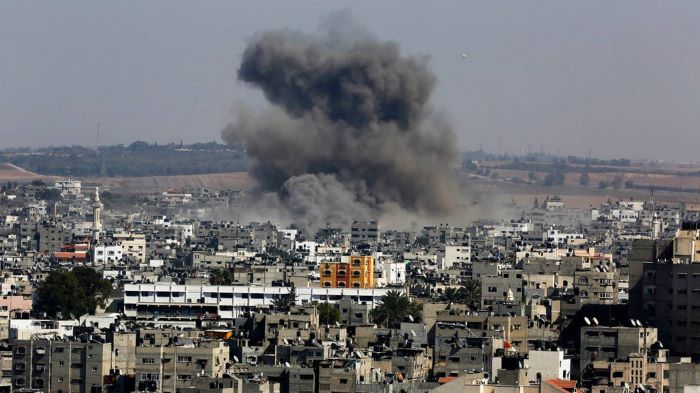World
The enduring conflict between Israel and Hamas shows no signs of resolution
The enduring conflict between Israel and Hamas exhibits no signs of resolution. Both sides grapple to achieve their fundamental aims, and there is no clear path to enduring peace. As the conflict enters a protracted phase, concerns rise over the potential for a lengthy and costly struggle.
Netanyahu’s Determination
Israeli Prime Minister Benjamin Netanyahu has reiterated his commitment to the complete destruction of Hamas as a significant military and political force. Despite these intentions, doubts are emerging within Israel about the feasibility of this goal. The military’s limited progress in Gaza raises questions about the effectiveness of the current campaign.
“Netanyahu’s vow to annihilate Hamas faces skepticism in Israel amid doubts about campaign effectiveness in Gaza,” according to Bloomberg.
International Pressures
International pressure is mounting for a prolonged cease-fire to facilitate the release of over 100 Israeli hostages held by Hamas and increase the delivery of humanitarian aid to Gaza’s civilian population. The cease-fire terms show significant disparities, and an uncertain deal, however, casts doubt on the possibility of reaching a lasting agreement. This leaves the prospect of a cease-fire as either the end of the current conflict or a temporary pause.
Military Operations Outlook
If the cease-fire fails to materialize, senior Israeli officers anticipate continued military operations against Hamas in Gaza for months. These operations could potentially extend throughout the year. The challenge is to strike a balance between avoiding a prolonged occupation that could trigger an insurgency and preventing a swift withdrawal. A swift withdrawal might lead to the resurgence of Hamas as the de facto governing entity in Gaza.
Complexities of Eradication
Experts emphasize that Israel’s central war aim is intricate, and they suggest that unless Israel obliterates or expels the people of Gaza, Hamas is likely to endure in some form. The complexities of eradicating an entrenched political and military force within a defined territory further complicate Israel’s military objectives.
Existential Challenges
The broader conflict does not pose an existential threat to Israel’s military strength. However, the ideological and radical aims of groups such as Hamas, Hezbollah, and the Iranian regime are perceived as existential challenges. Recent events have left Israel traumatized, leading to strong public support for the ongoing military campaign. However, growing concerns exist that it may transform into a protracted and costly endeavor.
Escalating Consequences
As casualties and economic damage escalate, the evolving situation in Gaza underscores the enduring nature of the conflict, with no clear resolution in sight. The struggle between Israel and Hamas continues, prompting close scrutiny from the international community. Questions arise regarding the potential long-term consequences of the conflict.
“The escalating casualties and economic damage in Gaza highlight the enduring Israel-Hamas conflict, with uncertain resolution,” said Barron’s.

